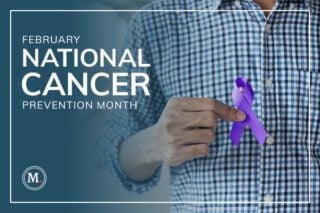
A wide variety of cancer support groups exist to help patients and caregivers. The right group can be a meaningful and informative space to connect with peers and professionals.
You can seek support in the ways that fit your unique situation. You may find joining multiple groups helps. You may find that different groups are better at different points in your cancer journey. Groups specific to mesothelioma exist, but you may also find something you like within the broader cancer community.
When deciding on a support group, it helps to consider how they are structured. In many ways, a support group’s leadership can define its benefits.
Peer-led Groups: Providing a Sense of Community
Some cancer support groups are led by peers. Trained facilitators may lead by helping with discussion, but they do not usually give advice. Peer-led groups can provide a sense of community and purpose for cancer patients and caregivers.
These groups give you a chance to express your experience and to participate in your peers’ experiences. This can help with feelings of loneliness and isolation that often come with cancer.
Peer-led groups can also be educational. Other group members may offer tips on managing cancer. You may pick up information about things like daily routines, personal fitness and pet therapy. You may also want to offer up any insights you’ve gained from your own experience with cancer.
Helping others can provide a sense of purpose and meaning. It may also strengthen your feeling of community within the group. Many long-term support group members are motivated by a desire to help others.
Professional-led Groups: Providing Expert Therapeutic Services
Some cancer groups are led by trained professionals. A professional like a social worker or psychologist leads the support group discussion. The professional may also offer therapeutic services. For example, a psychologist may offer ways to express and manage difficult or negative emotions.
It can feel overwhelming when faced with all the new information that comes with a cancer diagnosis. It can be challenging to understand prognosis, treatment and other complicated topics. Joining a cancer support group led by a professional can help patients and caregivers better understand and process their cancer experience.
These groups can also be a space for patients and caregivers to connect and exchange information. The discussion format depends on the professional leading the group and their personal facilitating style.
Informational Groups: Providing Practical Advice
Some cancer groups may be more narrowly focused on providing practical information for cancer patients and caregivers. These groups may invite speakers to address members on specific topics. For example, the speaker may talk about how to deal with problems at work or school related to cancer. Other potential topics include how to deal with insurance and how to maintain good nutrition during cancer treatment.
Finding the Right Support Group for You
It is important to find a group that makes you feel comfortable and supported. If you do not like a group, there is no shame in leaving it and trying another.
You may also conclude that group settings are not your preferred way to learn about cancer or process your feelings about it. Other resources are available, like one-on-one counseling. You can also ask your healthcare team for additional support options.




